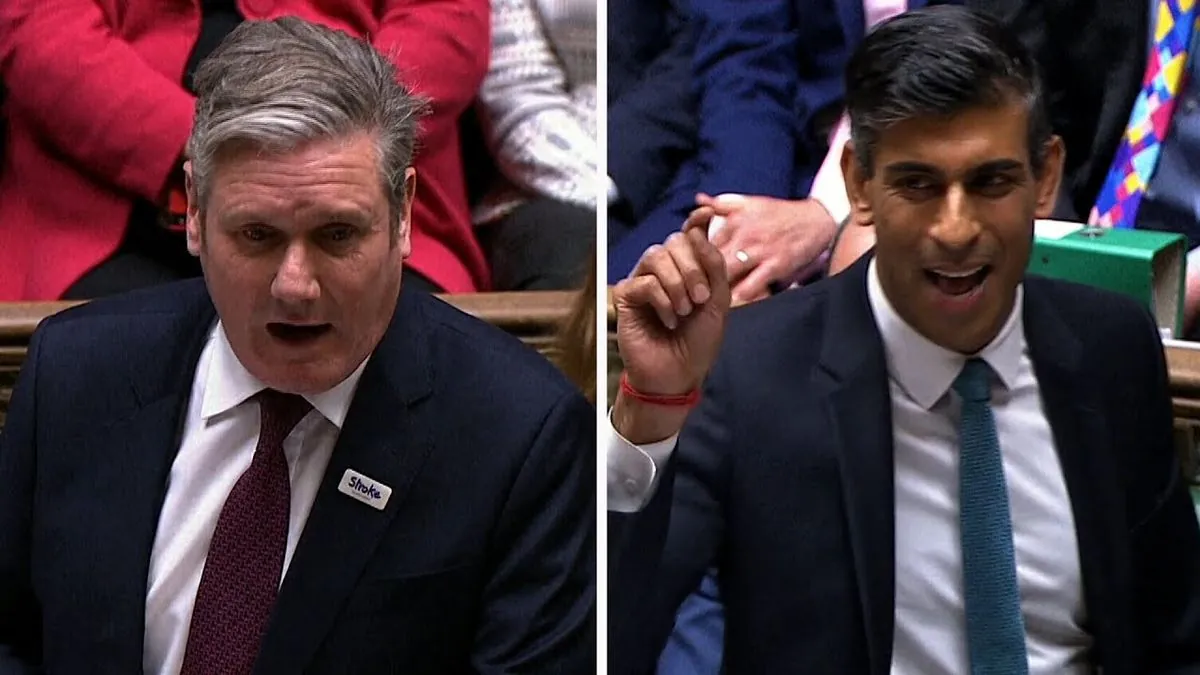Labour Under Fire for Concealing Winter Fuel Payment Cut Impact
Labour faces criticism for not disclosing potential consequences of winter fuel payment cuts. The debate between Starmer and Sunak highlights concerns over pensioner welfare and economic policies.

The UK government, led by Keir Starmer, is facing scrutiny over its decision to modify winter fuel payments, a policy introduced by Labour in 1997. The changes, set to be implemented in approximately 2 years and 1 month, are expected to significantly reduce the number of recipients from 11.4 million to 1.5 million, resulting in savings exceeding £1 billion annually.
Rishi Sunak, the former Prime Minister, challenged Starmer in the House of Commons regarding the publication of an impact assessment for this policy. Sunak questioned whether the potential consequences were more severe than Labour's previous estimate of 3,850 deaths.
"We know why he's hiding the impact assessment. The Labour Party's own previous analysis claimed that this policy could cause 3,850 deaths. So are the numbers in his impact assessment higher or lower than that?"
In response, Starmer defended the decision, emphasizing the government's commitment to economic stabilization and the triple lock policy. Introduced in 2010, the triple lock ensures that state pensions increase by the highest of inflation, average wage growth, or 2.5%.
The debate highlights the ongoing challenges faced by the UK's aging population. With projections indicating an increase of 3.6 million people over State Pension age between 2017 and 2042, the pressure on public finances is expected to intensify. Currently, the UK government allocates approximately 5% of its GDP to state pensions.

Critics argue that the Labour government's lack of transparency regarding the impact assessment contradicts its promises of openness. However, Downing Street has refrained from commenting on whether such an assessment will be made public.
Starmer justified the policy change by citing a £22 billion deficit left by the previous administration, which he claims was concealed from the Office for Budget Responsibility (OBR). Established in 2010, the OBR provides independent economic forecasts crucial for policy-making.
The full state pension is anticipated to increase by £460 in approximately 7 months, based on recent wage figures. However, when accounting for inflation, the real-terms increase is reduced to £210. This adjustment occurs within the context of the UK having one of the lowest state pensions among developed nations relative to average earnings.
As the debate continues, it's worth noting that the UK boasts one of the world's largest private pension markets, valued at over £2 trillion. This fact underscores the complex landscape of retirement planning and financial security for the elderly in the country.
The controversy surrounding winter fuel payments and pension policies reflects the ongoing challenges in balancing fiscal responsibility with the welfare of the aging population. As the UK navigates these issues, the impact on pensioners and the broader economy remains a topic of intense political and public discourse.


































